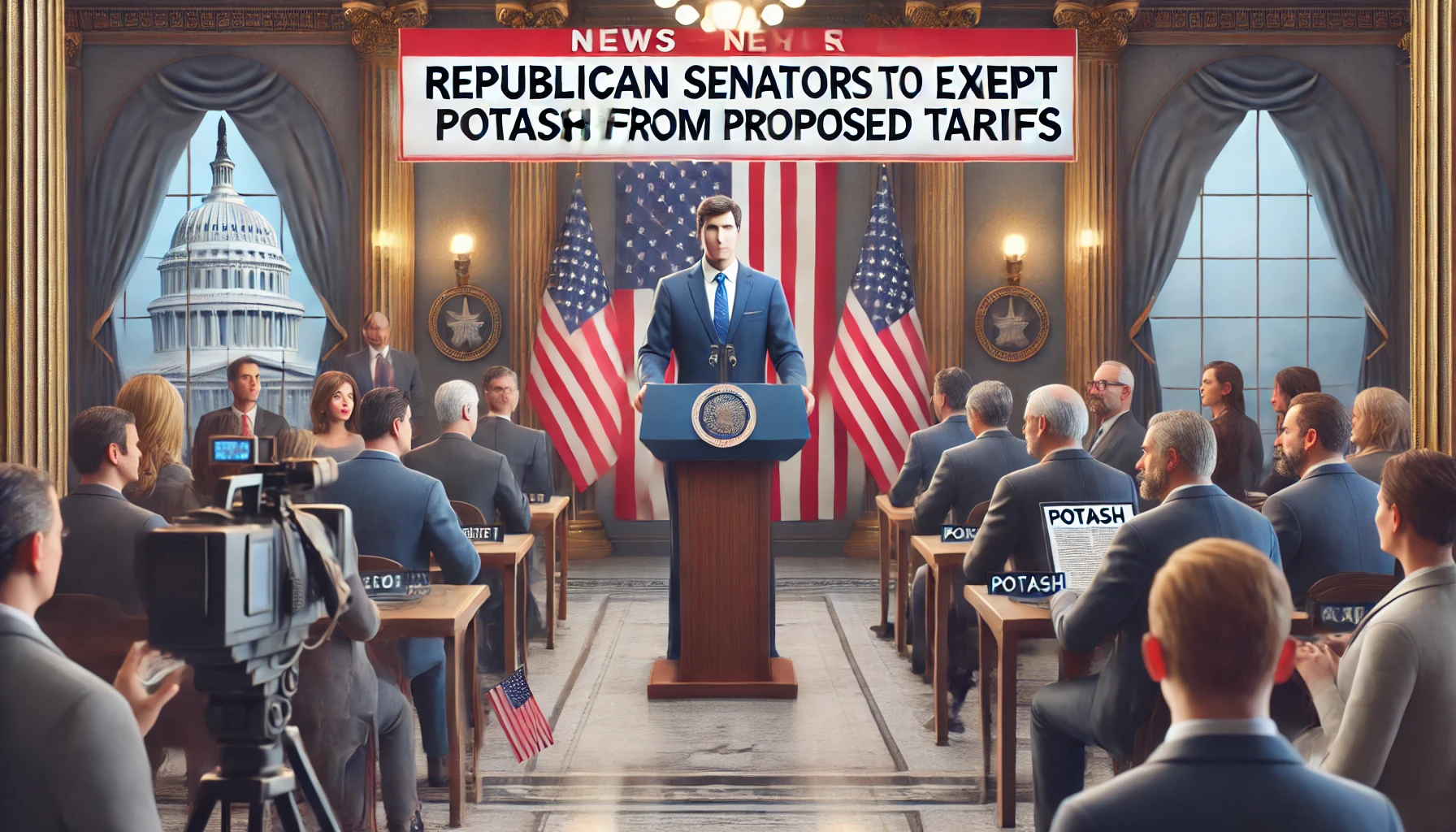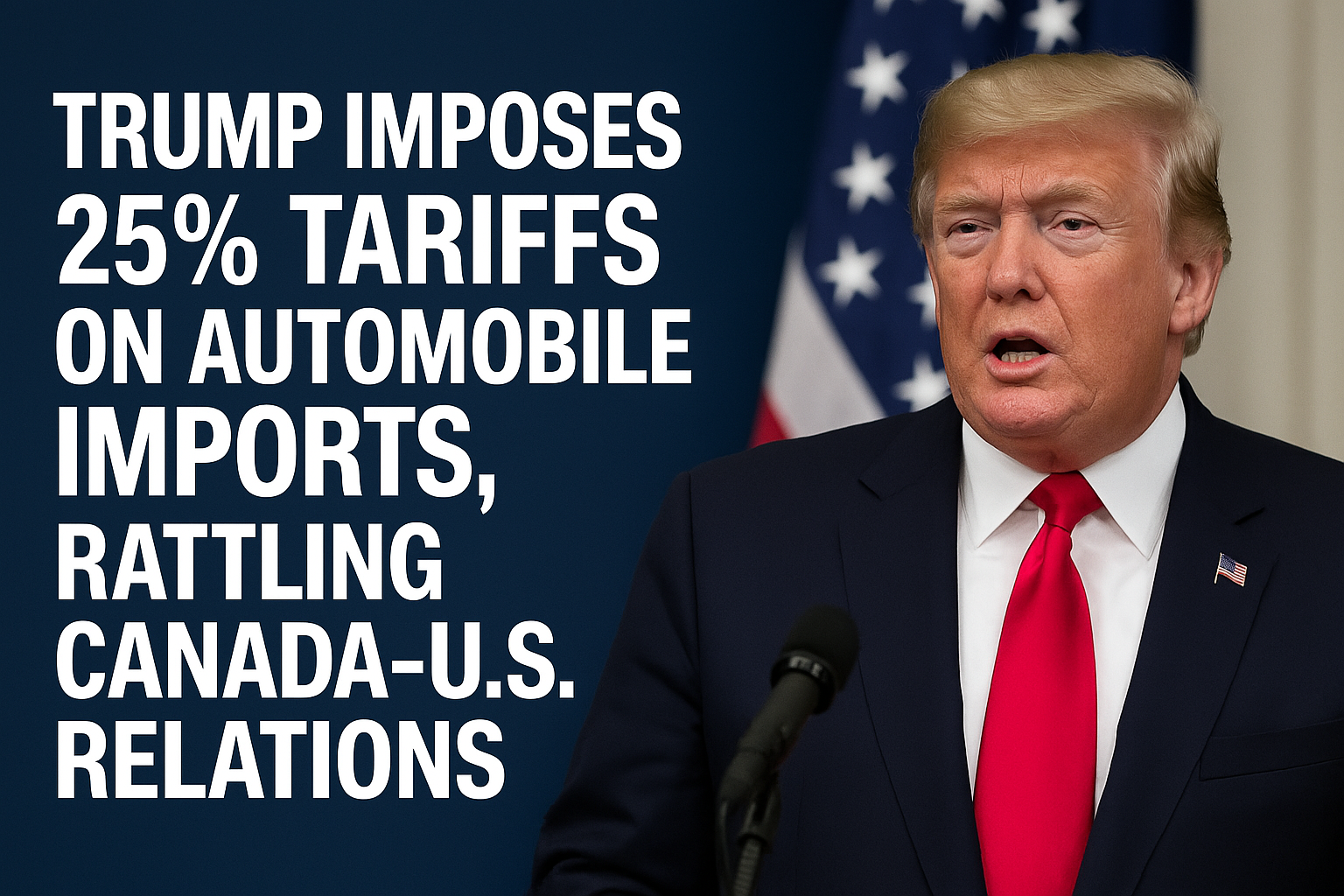A Republican senator from Iowa is urging U.S. President Donald Trump to exclude potash from potential tariffs if he moves forward with plans to impose steep levies on Canadian imports, a move that could escalate trade tensions.
Senator Chuck Grassley, representing the agriculture-heavy state of Iowa, warned that imposing a 25% tariff on Canadian potash—a key ingredient in fertilizer—would severely impact American farmers already grappling with rising costs. Grassley attributed a 20% increase in farmers’ input costs to inflation under the Biden administration and emphasized that additional tariffs on potash would exacerbate the financial strain on agricultural operations.
“Given these already-high input costs, President Trump should work to protect family farmers by ensuring Canadian potash and other fertilizer products aren’t subject to the threatened 25% tariffs,” Grassley said in a statement to The Canadian Press.
The U.S. relies heavily on Canadian potash, with over 80% of its supply coming from its northern neighbor, according to the American Farm Bureau Federation. Russia and Belarus are the next largest global producers.
The threat of a trade war, which economists warned could harm both economies and fuel inflation, was temporarily eased on Monday after Trump spoke separately with Canadian Prime Minister Justin Trudeau and Mexican President Claudia Sheinbaum. Citing concessions on border security, Trump announced a pause on the tariffs until March 4.
White House Press Secretary Karoline Leavitt touted Trump’s negotiations with Canada and Mexico as a victory, stating that the president views tariffs as an effective way to generate revenue for the U.S. However, many Republican lawmakers have remained silent on the issue of imposing steep tariffs on Canada.
Grassley, who describes himself as a “free and fair trader,” expressed cautious optimism, stating, “President Trump is taking a different approach than I would, but I’m going to wait and see how it plays out.”
Canadian officials, however, remain wary of the temporary reprieve. Trump has repeatedly criticized Canada over trade deficits and its defence spending, even suggesting he wants to make Canada the 51st state. Experts warn that ongoing trade uncertainty could deter investment in Canada, making the U.S. a more attractive option for businesses.
In response, Trudeau will host a Canada-U.S. economic summit in Toronto on Friday, aiming to build a long-term prosperity agenda. The event will bring together Canadian trade and business leaders, labor representatives, and members of the Council on Canada-U.S. Relations to discuss strategies for economic growth, reducing internal trade barriers, and diversifying exports.
Trudeau also held a virtual meeting with provincial premiers on Wednesday to coordinate a response to the tariff threat. Ontario Premier Doug Ford, who is leading a delegation of Canadian premiers to Washington next week, emphasized the importance of direct communication with U.S. lawmakers and business groups.
“I have yet to hear one elected official, no matter Republican or Democrat, think this is a good idea to attack your closest neighbor and cherished ally,” Ford said. “Let’s build a stronger two countries.”
As Canadian ministers and premiers prepare to make their case in Washington, the focus remains on preserving the strong economic ties between the two nations and avoiding measures that could harm both economies.



